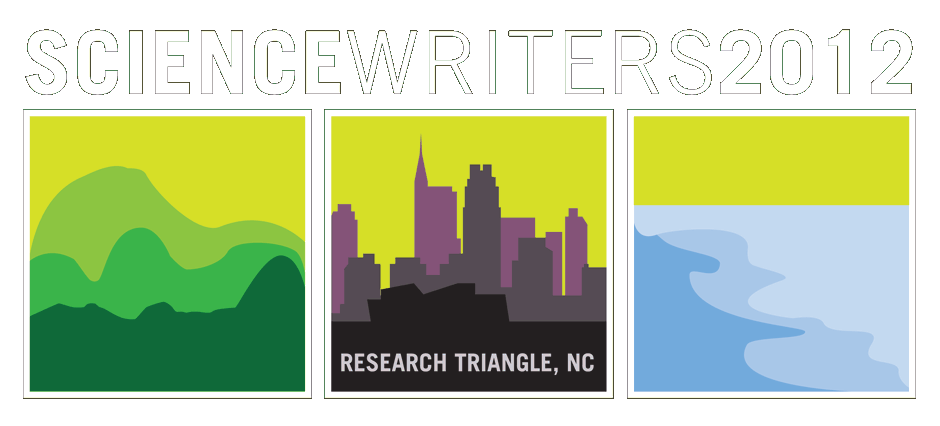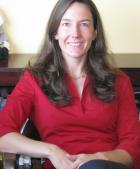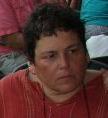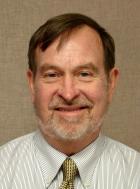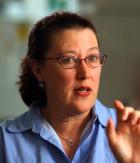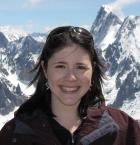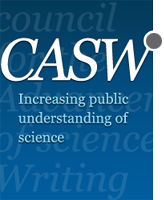Speakers
Bruce E. Logan
Kappe professor of environmental engineering, Penn State University
Environmental biotechnologist Bruce Logan's research focuses on novel technologies that produce energy from microbial processes and on developing a global water infrastructure for both industrialized and developing countries that is sustainable in energy terms. The author or co-author of more than 300 refereed publications and several books, he collaborates around the world and has been a visiting researcher in England, Saudi Arabia and China. He received his PhD in 1986 from UC Berkeley and served on the University of Arizona faculty prior to joining the faculty at Penn State in 1997.
Speaking:
-
Monday, October 29th, 8:30 am - 10:30 am
-
Amanda Mascarelli
Freelance science journalist and contributor to the upcoming book “The Science Writer's Handbook: Everything You Need to Know to Pitch, Publish and Prosper in the Digital Age"
Organizing:
-
Saturday, October 27th, 1:45 pm - 3:00 pm
Moderating:
-
Maryn McKenna
Freelance
Maryn McKenna is an independent journalist and author who specializes in public health, global health and food policy.
She is a blogger for Wired, a columnist and contributing editor for Scientific American, and writes frequently for national magazines including SELF, Health and More, and the Annals of Emergency Medicine. Her work has also appeared in The Guardian, China Newsweek, MSNBC.com, CNBC.com, the Los Angeles Times, the Washington Post, Boston Magazine, Chicago Magazine, the Bulletin of the History of Medicine, Heart Healthy Living, Georgia Trend and other magazines.
Speaking:
-
Saturday, October 27th, 11:00 am - 12:15 pm
-
Saturday, October 27th, 3:45 pm - 5:00 pm
-
Anne Collins McLaughlin
Assistant professor of psychology, North Carolina State University
Anne McLaughlin received her psychology PhD in 2007 from Georgia Tech. She has studied motivation in a number of contexts, including hand-washing in healthcare settings, before focusing on individual differences in cognition in adults over the age of 65 and in particular on maintaining mental abilities at older ages via cognitive exercise. She collaborates with Jason Allaire, a lifespan developmental psychologist at NCSU, and Maribeth Gandy, a computer scientist at Georgia Tech. She maintains the Human Factors Blog.
Speaking:
-
Sunday, October 28th, 3:30 pm - 4:30 pm
-
A'ndrea Messer
Senior Science & Research Information Officer, Research Communications, Penn State University
A graduate of Purdue in Science and Culture (chemistry), Boston University in Journalism/Science Communication, A'ndrea Messer is a veteran science communicator and press officer at Penn State where she covers the natural science waterfront. At Penn State, where she has worked for 24 years, Messer writes about research of all kinds and advises faculty, staff and students on all aspects of media relations. She is also an archaeologist, with master's and doctoral degrees in Anthropology from Penn State.
Speaking:
-
Saturday, October 27th, 1:45 pm - 3:00 pm
-
Tom Meyer
Arey distinguished professor of chemistry; director, UNC Energy Frontier Research Center, University of North Carolina at Chapel Hill
Tom Meyer’s pioneering work on converting sunlight to chemical energy laid much of the groundwork for the fast-moving field now called artificial photosynthesis — the search for technologies that capture and store solar energy. A National Academy member who is one of most highly cited and honored chemists in the world, Meyer returned to the University of North Carolina faculty in 2005 after five years as Associate Director of Los Alamos National Laboratory and now focuses on the renewed search for solar fuels. Email: tjmeyer@email.unc.edu.
Speaking:
-
Monday, October 29th, 8:30 am - 10:30 am
-
Terrie Moffitt
Knut Schmidt Nielsen professor of psychology and neuroscience, Duke University
“People are curious about how lives unfold,” says Terrie Moffitt, describing the public interest that has created a worldwide audience for her research. Moffitt studies how genetic and environmental risks work together to shape the developmental course of abnormal human behaviors and psychiatric disorders. She is associate director of the Dunedin Longitudinal Study, which follows 1,000 people born in 1972-73 in a New Zealand town, and also directs the Environmental Risk Longitudinal Twin Study, which follows 1,100 British families with twins born in 1994-95.
Speaking:
-
Monday, October 29th, 3:40 pm - 4:30 pm
-
Amanda Moon
Scientific American / FSG
Amanda Moon is Senior Editor at Farrar, Straus and Giroux where she manages the Scientific American/Farrar, Straus and Giroux book imprint. She has acquired and edited many award-winning books in science, psychology, education, and more.
Speaking:
-
Saturday, October 27th, 9:15 am - 10:30 am
-
Lisa M. Pinsker Munoz
Public Information Officer, Society for Personality and Social Psychology
Lisa is the Public Information Officer for the Society for Personality and Social Psychology (SPSP). Previously, she worked as a Press Officer for the World Meteorological Organization in Geneva, Switzerland, where she organized press activities for World Climate Conference-3 -- an international science meeting for policy-makers that attracted more than 200 journalists worldwide. She worked as a reporter and then managing editor of Geotimes magazine (now Earth) for several years. Lisa has a B.S. from Cornell University in earth systems science with a specialization in science writing.
Organizing:
-
Saturday, October 27th, 1:45 pm - 3:00 pm
Moderating:
-
